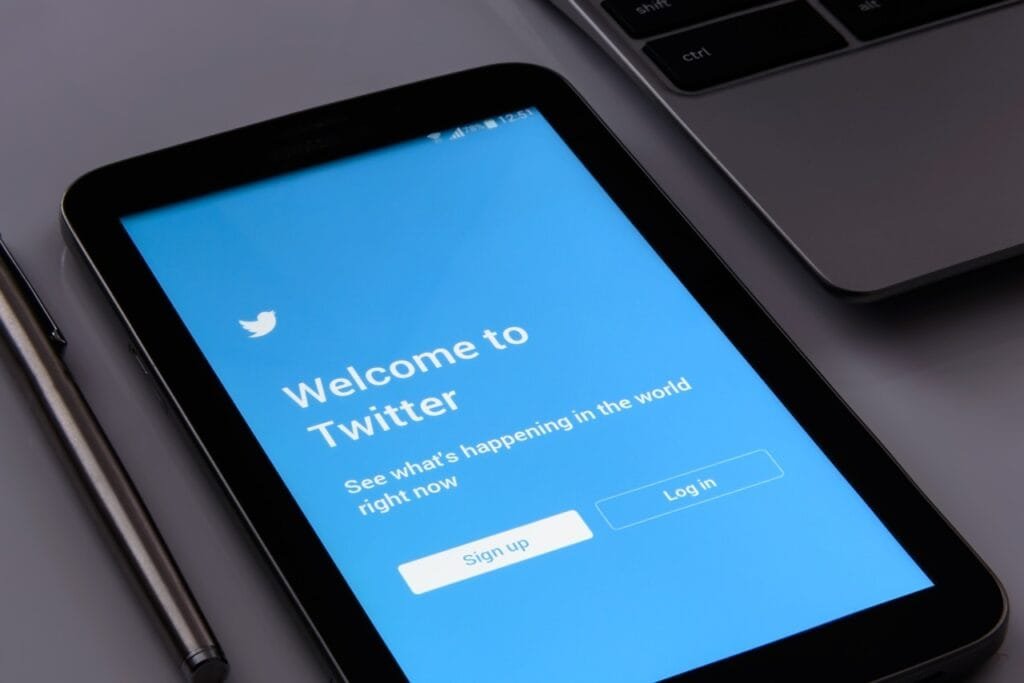This Article has been revised, edited and added to, by Poulomi Chakraborty.
The excitement of a festival, the allure of a cultural event, or the thrill of a once-in-a-lifetime sports spectacle – events and festivals can be the cornerstone for many travel decisions. As event organizers, travel agencies, or accommodation providers, tapping into this audience through SEO is a game-changer. If done right, SEO can bridge the gap between eager attendees and the event, ensuring that the potential of these occasions isn’t lost in the vast digital ocean.
In this comprehensive guide, we’ll delve deep into the world of SEO for travel events and festivals, providing actionable strategies and tips to help your event shine online. Let’s embark on this enlightening journey together.
Understand the Event’s Unique Appeal

Every event or festival has its unique pull. Understanding this is the foundation for all your SEO efforts.
- Research and Analysis: Start with deep-diving into what makes your event unique. Is it the cultural significance, a celebrity lineup, or an exclusive experience?
- Keyword Selection: Based on your findings, curate a list of keywords that resonate with your event’s unique features. Utilize tools like SEMrush or Google’s Keyword Planner for insights.
- Content Creation: Tailor your website’s content, keeping in mind this unique appeal. This could be in the form of blog posts, video content, or infographics.
Crafting a Narrative Around Your Event
At the heart of every successful SEO strategy for travel events and festivals lies a compelling narrative. This narrative goes beyond the surface details of the event to delve into the story behind it, the emotions it evokes, and the experiences it promises. For startup founders, crafting this narrative is not just about listing event features but about telling a story that resonates with your target audience.
This involves identifying the core themes of your event and weaving them into every piece of content you produce. Whether it’s the heritage of a cultural festival, the adrenaline of a sports event, or the innovation of a tech expo, your narrative should encapsulate what makes your event not just unique but unforgettable.
Analyzing Audience Sentiments and Interests
Understanding your audience is crucial in tailoring your SEO strategy to meet their needs and interests. This involves conducting thorough market research to gauge audience sentiments, preferences, and search behaviors. Utilize social media listening tools to monitor conversations around similar events and topics.
Analyze the language and keywords your target audience uses, and adapt your content to reflect this. This not just enhances your SEO efforts but also ensures your event’s narrative is grounded in what truly matters to your audience.
Integrating Storytelling with SEO
Once you have your narrative and understand your audience, the next step is to integrate this storytelling into your SEO strategy. This means optimizing your content not just for keywords but for storytelling elements that engage and captivate. Use descriptive, emotive language in your titles, meta descriptions, and throughout your website content to draw readers in.
Create blog posts, articles, and landing pages that tell a story, whether it’s about the history of your event, behind-the-scenes looks, or personal stories from past attendees. These stories should be optimized for both search engines and human interest, striking a balance between the technical aspects of SEO and the human elements of narrative.
Leveraging Multimedia Content
In today’s digital landscape, multimedia content plays a vital role in engaging audiences and enhancing SEO. High-quality images, videos, and interactive content not only make your event more appealing but also increase your visibility in search results.
Videos of past events, interviews with performers or speakers, and interactive maps or virtual tours can significantly enrich your narrative. Ensure these multimedia elements are optimized with the right keywords in their file names, alt texts, and surrounding content to boost your SEO efforts further.
Continuous Optimization and Feedback Integration
SEO is not a set-it-and-forget-it task. It requires continuous optimization and adaptation based on real-time feedback and performance data. Monitor the performance of your event’s narrative through analytics tools, tracking how users interact with your content.
Use A/B testing to experiment with different storytelling elements and SEO tactics to see what resonates best with your audience. Incorporate user feedback, whether from comments, social media interactions, or direct feedback, to refine and enhance your narrative and SEO strategy.
Understanding and leveraging your event’s unique appeal through SEO requires a strategic blend of narrative crafting, audience analysis, and technical optimization. By focusing on these areas, startup founders can create a compelling online presence for their events, captivating and engaging their target audience in a way that not only drives traffic but builds lasting connections.
Optimize for Local Search

Most events and festivals are location-specific, making local SEO crucial.
- Google My Business: Ensure your event is listed on Google My Business. Include relevant details like location, dates, and contact information.
- Local Directories: List your event on local directories and event sites. Ensure the information is consistent across platforms.
- On-Page SEO: Incorporate the event’s location into meta tags, URLs, and content. This boosts the chances of your site appearing for location-specific queries.
Establishing a Strong Local Online Presence
For startup founders, optimizing for local search is a critical step in promoting travel events and festivals. The key lies in establishing a robust online presence that mirrors the local appeal and significance of your event. This means going beyond basic listings and engaging deeply with the local digital ecosystem.
Create detailed profiles on local business directories, event calendars, and tourist information sites. These profiles should not just list your event but also tell its story, highlighting its relevance to the local community and culture. Engaging with local online communities, forums, and social media groups can also amplify your presence and relevance in local search results.
Leveraging Local Partnerships
Building partnerships with local businesses, institutions, and influencers can significantly boost your local SEO efforts. Collaborate with local restaurants, hotels, and shops that can benefit from the influx of visitors to your event.
These partnerships can lead to mutually beneficial link exchanges and shared marketing efforts that enhance your visibility in local search results. Additionally, collaborating with local tourism boards and chambers of commerce can provide authoritative backlinks and increase your event’s legitimacy and reach in the eyes of both search engines and potential attendees.
Mastering Local Content Creation
To truly resonate with a local audience and optimize for local search, your content must reflect a deep understanding of the local culture, language, and interests. This involves creating content that speaks directly to the local audience, using local dialects or slang where appropriate, and referencing local landmarks, traditions, and news.
Hosting local interest stories, interviews with local personalities involved in the event, and guides on how to make the most of the local area during the event can also enrich your content strategy. This local-focused content not only boosts your SEO but also builds a stronger connection with the community.
Optimizing for Voice and Mobile Search
With the increasing use of smartphones and voice assistants, optimizing for voice and mobile search has become indispensable in local SEO strategies. People often use voice search to find directions, opening hours, and event details while on the move.
Ensure your event’s online presence is optimized for mobile devices, with fast loading times, mobile-friendly navigation, and content that answers common voice search queries. Phrases like “near me” or questions starting with “Who, What, When, Where, and How” should be naturally integrated into your content, mirroring the conversational tone used in voice searches.
Utilizing Local Reviews and Testimonials
Encouraging and showcasing reviews and testimonials from local attendees can greatly enhance your credibility and visibility in local search results. Positive reviews on Google My Business, social media platforms, and your website can improve your search rankings and make your event more appealing to potential attendees.
Engage with your reviewers by responding to their comments to show that you value their feedback and create a positive online community around your event.
Optimizing for local search is a multifaceted process that requires a strategic approach to online presence, partnerships, content creation, and the latest search technologies.
By deeply integrating with the local digital ecosystem and continuously adapting to the evolving landscape of local SEO, startup founders can significantly enhance the visibility and appeal of their travel events and festivals, attracting more attendees and enriching their event experience.
Collaborate with Influencers and Bloggers

Tapping into established audiences can amplify your reach.
- Identify Relevant Influencers: Look for influencers or bloggers who cater to audiences interested in events like yours.
- Guest Posts: Invite them to write a guest post on your website or collaborate on content that can be shared on both platforms.
- Social Media Shout-outs: Engage with these influencers on social platforms. Their shout-outs or shares can significantly increase your event’s visibility.
Building Authentic Relationships with Influencers and Bloggers
For startups looking to elevate their travel events and festivals, the power of influencers and bloggers cannot be underestimated. The crux of successful collaborations lies in building authentic relationships rather than transactional partnerships. Start by identifying influencers and bloggers who share a genuine passion for the type of events you are organizing.
These individuals should align with your event’s ethos, target audience, and values. Engaging in meaningful interactions, understanding their content style, and respecting their audience will pave the way for collaborations that are authentic and impactful. Rather than simply seeking promotional content, focus on creating partnerships that allow influencers to share their unique perspectives and experiences related to your event.
Creating Co-Branded Content That Resonates
Once you have established a relationship with influencers and bloggers, the next step is to collaborate on co-branded content. This content should not only highlight the unique aspects of your event but also resonate with the influencer’s audience. Consider formats that encourage creativity and personal storytelling, such as behind-the-scenes tours, exclusive interviews with artists or speakers, and personalized event guides.
By allowing influencers to inject their personality and flair into the content, you ensure that the promotional material is engaging, authentic, and more likely to captivate their followers. This co-branded content can live on both your platforms and theirs, doubling the visibility and impact.
Leveraging Multi-Channel Promotion
In today’s fragmented digital landscape, a multi-channel approach is essential to maximize the reach and effectiveness of your influencer collaborations. Encourage influencers and bloggers to share content across their social media platforms, blogs, and email newsletters. This not only amplifies your event’s visibility but also targets different segments of their audience across various touchpoints.
Additionally, integrating this content into your digital advertising strategy can further enhance its reach. Utilize snippets, quotes, or images from influencer content in your paid ads, social media posts, and on your event website to create a cohesive and compelling promotional campaign.
Measuring Impact and ROI
To truly understand the value of your collaborations with influencers and bloggers, it’s crucial to measure the impact and return on investment (ROI) of these partnerships. Set clear goals and metrics at the outset of your campaign, such as increased website traffic, higher ticket sales, or improved social media engagement. Use tracking links, promo codes, and social media analytics to monitor performance and gather data.
This not only helps in assessing the effectiveness of individual influencers but also in refining your strategy for future collaborations. Regularly reviewing these metrics allows you to make informed decisions and allocate your marketing budget more efficiently.
Fostering Long-Term Collaborations
Building long-term relationships with influencers and bloggers can yield dividends far beyond a single event. These partnerships can evolve into a valuable part of your overall marketing strategy, providing consistent and authentic promotion for your brand.
Consider creating ambassador programs or offering exclusive benefits to influencers who have demonstrated a strong alignment with your event and brand values. By investing in these relationships, you ensure a pool of passionate advocates who can help promote future events and contribute to the sustained growth of your brand.
Collaborating with influencers and bloggers offers a dynamic and impactful avenue for promoting travel events and festivals. By focusing on authentic relationships, creative co-branded content, a multi-channel promotional strategy, measurable outcomes, and long-term collaborations, startups can significantly enhance their event’s visibility, engagement, and success.
Create Event-Specific Landing Pages

Tailored landing pages can serve as powerful tools to drive registrations or ticket sales.
- Unique URL: Have a descriptive and easy-to-remember URL for your event. This can enhance recall and sharing potential.
- Rich Media: Incorporate videos, images, or virtual tours. They can provide a teaser of what attendees can expect, igniting their excitement.
- Optimized Content: Ensure your landing page content is keyword-optimized and compelling. Your call-to-action (CTA) should be clear, urging visitors to take the desired action.
Crafting Compelling Landing Page Narratives
The cornerstone of a successful SEO strategy for travel events and festivals lies in the creation of event-specific landing pages that do more than just inform—they engage and convert. For startup founders, the challenge and opportunity are to craft landing pages that narrate the essence of the event compellingly.
This involves weaving the unique selling propositions (USPs) of your event into a narrative that captures the imagination of potential attendees. Your landing page should tell a story that resonates with the target audience, highlighting the experiences, emotions, and transformations attendees can expect. Incorporate testimonials, stories from previous events, and vivid descriptions to create a tapestry that brings your event to life.
Integrating Advanced SEO Techniques
Beyond the basics of keyword optimization, your event-specific landing pages should incorporate advanced SEO techniques to stand out in a competitive digital landscape. This includes optimizing for long-tail keywords that match the specific search queries of your target audience, ensuring your content speaks directly to their needs and interests.
Utilize structured data markup to enable rich snippets in search results, making your event more visible and clickable. Additionally, optimize for speed and mobile responsiveness, as these factors significantly impact search rankings and user experience. Embedding interactive elements like videos and virtual tours can also enhance engagement while improving time spent on the page, a positive signal to search engines.
Personalizing User Experience
In an era where personalization can make or break the success of digital marketing efforts, your landing pages should offer personalized experiences to visitors. Use data analytics and visitor segmentation to customize content, offers, and calls-to-action (CTAs) based on user behavior, location, and interests.
For instance, returning visitors could be greeted with messages that acknowledge their previous interest, while first-time visitors receive a comprehensive introduction to your event. Implementing chatbots or interactive FAQs can further personalize the user experience, providing real-time assistance and information tailored to individual queries.
Implementing Dynamic Content Strategies
Dynamic content strategies can significantly amplify the effectiveness of your event landing pages. This involves regularly updating your page with fresh, relevant content that keeps potential attendees engaged and informed.
From countdown timers that build anticipation to live social media feeds that showcase real-time excitement, dynamic elements can create a sense of urgency and community. Blog posts, news articles, and video updates related to the event can keep the content vibrant and SEO-friendly, encouraging repeat visits and shares.
Leveraging A/B Testing for Optimization
Finally, the optimization of your event-specific landing pages is an ongoing process that requires constant testing and refinement. Implement A/B testing to experiment with different headlines, images, content layouts, and CTAs to determine what resonates most with your audience.
This data-driven approach allows you to fine-tune every element of your landing page for maximum impact and conversion. Regularly reviewing analytics to understand user behavior and preferences will enable you to make informed adjustments that enhance both user experience and SEO performance.
Creating event-specific landing pages that captivate, inform, and convert requires a multifaceted approach that blends compelling narratives with advanced SEO techniques, personalization, dynamic content, and continuous optimization.
By embracing these strategies, startup founders can significantly elevate their event’s online visibility and attractiveness, driving engagement, registrations, and ultimately, the success of their event.
Leverage Event Schema Markup

Schema markup assists search engines in understanding the context of your content, offering richer search results.
- Implement Event Schema: This helps in displaying specific event details like date, location, and price directly in search results, increasing the chances of clicks.
- Test Implementation: Use Google’s Structured Data Testing Tool to ensure your markup is implemented correctly.
Integrating Schema Markup for Enhanced Search Visibility
Event Schema Markup is a powerful tool that can significantly boost the visibility of your travel event or festival in search engine results, making it a critical component of your SEO strategy. For startup founders, understanding and correctly implementing this tool can be the difference between getting lost in the digital shuffle and standing out to your target audience.
Schema Markup provides search engines with a detailed understanding of the content of your webpage, enabling them to display more informative results to users. This includes specific details like the event date, location, and ticket availability, presented directly on the search engine results page (SERP), making your event more accessible and appealing to potential attendees.
Crafting a Detailed Schema Markup Strategy
To leverage the full potential of Event Schema Markup, it’s essential to develop a detailed strategy that outlines what information will be marked up and how it will be structured. This involves identifying the most relevant and search-impacting schema properties for your event, such as startDate, endDate, performer, location, and offers.
By providing comprehensive and accurate information through Schema Markup, you can improve your event’s search visibility and attract a more targeted audience. Additionally, consider including ratings, reviews, and social proof to further enhance your event’s appeal in search results.
Testing and Validating Your Markup
Implementing Schema Markup requires careful attention to detail to ensure it is correctly understood by search engines. Utilize tools like Google’s Structured Data Testing Tool and Rich Results Test to validate your markup before and after it goes live.
These tools can identify errors or areas of improvement, ensuring your markup is fully optimized for search engines. Regularly testing your Schema Markup is essential, especially if you make updates to your event details, to maintain accuracy and effectiveness in search results.
Monitoring Performance and Adjusting Strategy
After implementing Event Schema Markup, it’s crucial to monitor its performance and impact on your SEO efforts. Use analytics tools to track changes in search visibility, click-through rates (CTRs), and conversion rates. Analyzing this data can provide insights into how effectively your Schema Markup is driving traffic and engagement with your event page.
Be prepared to adjust your strategy based on performance data, optimizing your markup to better meet the needs of your target audience and improve your event’s overall search visibility.
Staying Up-to-Date with Schema Markup Best Practices
Search engine algorithms and the Schema.org vocabulary are continually evolving, making it important for startup founders to stay informed about the latest developments and best practices in Schema Markup.
Subscribing to SEO and digital marketing newsletters, attending webinars, and participating in forums can help you stay ahead of changes that could impact your event’s visibility in search results. By staying informed and adapting your Schema Markup strategy accordingly, you can ensure that your event continues to stand out in a crowded digital landscape.
Leveraging Event Schema Markup effectively can dramatically improve the discoverability and appeal of your travel event or festival in search engine results. By developing a detailed strategy, carefully implementing and validating your markup, monitoring performance, and staying up-to-date with best practices, startup founders can harness the power of Schema Markup to attract more attendees and ensure the success of their events.

Related: Check out our free SEO suite

Develop a Content Calendar
Consistent content can keep the audience engaged and improve search rankings.
- Pre-event Content: This can be in the form of teasers, announcements, or interviews with participants or celebrities associated with the event.
- During-event Content: Live updates, behind-the-scenes peeks, and daily summaries can keep the audience hooked.
- Post-event Content: Summaries, testimonials, or highlights can keep the buzz alive and serve as promotional material for future editions of the event.
Strategizing Content Creation with Precision
A meticulously planned content calendar is indispensable for maintaining a consistent and impactful online presence for your travel event or festival. For startup founders, the key to developing a content calendar that resonates with your audience and boosts SEO lies in strategic planning and execution.
This entails not only scheduling posts but also crafting content themes, aligning with key dates, and ensuring a mix of formats tailored to engage your audience and drive event interest.
Segmenting Content for Diverse Audience Engagement
Understanding that your audience is not monolithic is crucial in crafting a content calendar that appeals across demographics and interests. Segment your content strategy to address different audience segments, such as first-time attendees, repeat visitors, locals, and international guests.
For each segment, tailor your content to answer their specific questions, concerns, and interests. This approach not only enhances user engagement but also broadens your event’s appeal, attracting a more diverse attendee base.
Leveraging Key Milestones and Dates
Analyze the timeline leading up to your event and identify key milestones and dates that can anchor your content strategy. This includes early bird ticket release dates, lineup announcements, logistical information releases, and any pre-event activities.
Creating anticipation and keeping potential attendees informed and excited about upcoming announcements keeps your event top-of-mind and encourages sharing and interaction on social media platforms.
Incorporating Real-Time and Reactive Content
While a content calendar helps in planning your content strategy in advance, the ability to incorporate real-time and reactive content is equally important. Stay attuned to current trends, news, and social media conversations that you can leverage to make your event more relevant.
This flexibility ensures your content remains fresh, engaging, and in sync with your audience’s current interests and the broader cultural zeitgeist.
Analyzing Content Performance for Agile Adjustments
The development of a content calendar is an ongoing process, requiring regular analysis and adjustments based on content performance. Utilize analytics tools to monitor which types of content generate the most engagement, website traffic, and conversions.
This data-driven approach allows for agile adjustments to your content strategy, optimizing for the types of content that resonate most with your audience. Regularly revisiting and revising your content calendar based on these insights ensures your marketing efforts remain effective and aligned with your audience’s evolving preferences.
Fostering Community Through Content Collaboration
Finally, consider integrating community-generated content and collaborations into your content calendar. Engage with your audience by encouraging them to share their experiences, stories, and anticipation for the event.
Collaborate with influencers, speakers, performers, and local businesses to create a diverse range of content that showcases different perspectives and aspects of your event. This not only enriches your content mix but also fosters a sense of community and belonging among potential attendees.
A strategic content calendar is a powerful tool for startup founders looking to leverage SEO for their travel events and festivals. By planning content with precision, engaging diverse audience segments, leveraging key dates, incorporating real-time content, analyzing performance for adjustments, and fostering community through collaboration, you can create a dynamic and effective content strategy that drives interest, engagement, and attendance for your event.
Engage in Link Building

High-quality backlinks can bolster your site’s authority and improve search rankings.
- Partner Websites: Collaborate with partners, sponsors, or other stakeholders. They can feature your event on their websites, providing backlinks.
- Press Releases: Send out press releases to media outlets. If they cover your event, this can lead to valuable backlinks.
- Guest Blogging: Write guest articles for relevant blogs or websites in the travel or event industry. Ensure these articles link back to your event’s landing page or website.
Cultivating High-Quality Backlinks Through Strategic Outreach
For startup founders, engaging in link building is pivotal for enhancing SEO and establishing the credibility of your travel event or festival. Beyond traditional methods, strategic outreach for cultivating high-quality backlinks involves identifying and engaging with authoritative websites within your industry.
This process begins with thorough research to pinpoint platforms that share a synergy with your event’s theme, audience, or values. Crafting personalized outreach emails that highlight the mutual benefits of linking to your content can significantly increase your chances of securing valuable backlinks.
Remember, the quality of backlinks often outweighs quantity, with links from reputable sources dramatically enhancing your site’s authority and search engine rankings.
Leveraging Local Media and Community Platforms
Local media outlets and community platforms represent a goldmine for link-building opportunities, especially for travel events and festivals. Establishing relationships with local newspapers, radio stations, and community websites can lead to coverage that not only boosts awareness but also provides authoritative backlinks to your event website.
Consider offering exclusive stories or interviews, which can entice local media to cover your event. Additionally, engaging with online community forums and local event calendars not only places your event in front of a targeted audience but also generates backlinks that enhance your local SEO efforts.
Hosting and Participating in Virtual Events
In the digital age, hosting or participating in virtual events, webinars, and live streams offers a unique avenue for link building. These online events provide content that is valuable, engaging, and shareable, encouraging participants and industry peers to link back to your website.
Collaborate with influencers, industry experts, and other event organizers to expand your reach and multiply the backlink opportunities. Make sure to promote these virtual events across your social media channels and website, maximizing attendance and the potential for backlinks.
Creating Shareable, High-Value Content
One of the most effective strategies for link building is creating content that naturally encourages sharing and linking. This includes comprehensive guides, infographics, research studies, or engaging videos related to your event or its theme. High-value content that offers insights, entertainment, or utility is more likely to be shared by industry websites, bloggers, and even attendees. Utilize social media to amplify the reach of your content, increasing the likelihood of earning backlinks from various sources.
Implementing a Reciprocal Linking Strategy with Caution
Reciprocal linking, the practice of exchanging links with other websites, can be a beneficial strategy if implemented with caution. This technique involves partnering with businesses, sponsors, and other events in a way that provides value to both parties.
However, it’s crucial to ensure that reciprocal links are relevant and add value to your audience. Excessive reciprocal linking, especially with unrelated sites, can be penalized by search engines. Focus on building genuine partnerships that enhance the user experience and contribute positively to your event’s SEO strategy.
Monitoring and Analyzing Backlink Quality
Finally, actively monitor and analyze the quality of backlinks to ensure they are contributing positively to your SEO efforts. Use tools like Google’s Search Console, Ahrefs, or Moz to track your backlinks, assessing their authority and relevance.
This ongoing analysis allows you to identify and disavow any low-quality or spammy backlinks that could harm your search engine rankings. Additionally, understanding the profile of your backlinks can provide insights into successful outreach strategies and areas for improvement.
Engaging in link building through strategic outreach, leveraging local media, hosting virtual events, creating high-value content, cautiously implementing reciprocal linking, and monitoring backlink quality are essential strategies for startup founders. By enhancing the credibility and SEO of your travel event or festival, these strategies can significantly increase visibility, attract a wider audience, and contribute to the overall success of your event.
Conclusion
Travel events and festivals stand as a testament to the diverse and rich experiences that our world has to offer. From the smallest community gathering to the grandest international festival, each event is an opportunity to bring people together and share moments of joy, discovery, and culture. However, in this digital era, ensuring that these events reach their intended audience requires more than just word-of-mouth or traditional advertising. It demands an understanding of the evolving digital landscape, specifically the importance of SEO.
By leveraging strategies such as localized SEO, collaboration with influencers, video marketing, and more, event organizers can ensure that their event not only gains visibility but also resonates with the right audience. When executed well, SEO doesn’t just boost website traffic or ticket sales; it enhances the overall experience, turning attendees into brand ambassadors who share their positive experiences, driving even more interest and attendance in the future.
In conclusion, as the travel industry continues to evolve and adapt to the digital age, integrating SEO into event promotion strategies will not just be an advantage but a necessity. By focusing on these strategies and continuously adapting to the changing SEO landscape, travel events and festivals can thrive, reaching audiences far and wide, and creating lasting memories for all involved.
Read Next
- Analyzing User Behavior and its SEO Implications
- Using Funnel Analysis for Better Conversion Rates
- How to Set Up Conversion Tracking for Booking Engines
- Understanding KPIs for Travel SEO
- SEO Strategies for Eco-Tourism Websites






















Comments are closed.